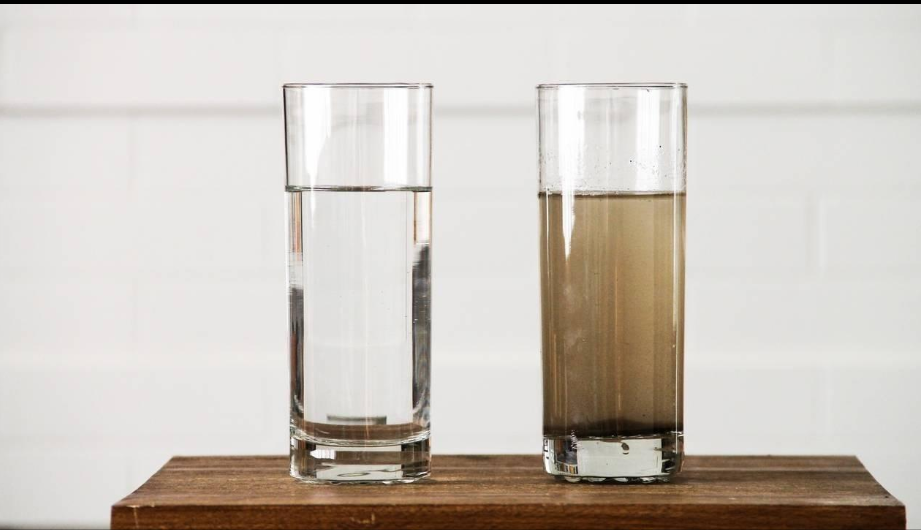Have you ever asked yourself if it’s okay to use dirty water for your houseplants? The type of water you use for watering matters a lot for your indoor plants’ well-being. Using dirty water can harm plants by spreading germs and minerals that certain plants can’t handle well.
In this blog post, we will cover potential reasons why you shouldn’t give dirty water to plants and how to effectively treat dirty water.
Can You Water Your Houseplants With Dirty Water?
No, it is not recommended to use dirty water on your houseplants because it may contain things that could make your plants sick. Chemicals and heavy metals in dirty water aren’t good for plant growth.
Dirty water could cause problems with how your plants get nutrients over time, too. Instead of using water right from the tap, it’s better to use cleaner water if you can. Clean water will help your indoor plants stay healthy and look their prettiest.
Potential Reasons Why You Should not Give Dirty Water to Plants
There are several potential reasons why using dirty water to water houseplants can be harmful. Dirty water often contains contaminants like bacteria or chemicals that can negatively impact plant health.
Harmful Contaminants
Dirty water picked up from municipal sources may contain bacteria, viruses, and chemicals that can make your houseplants sick. These contaminants have no place in a potted plant’s environment. Over time, harmful germs and substances in unfiltered water can cause nutritional deficiencies or toxicity in greenery.
To help your indoor plants stay vibrant and thriving, always use clean, filtered water for watering. Filtered water protects delicate leaves and soil from elements that could otherwise compromise your houseplants’ health.
Chemical Imbalance
It’s important for your houseplants to get water that’s close to neutral pH. Dirty water sometimes isn’t, being too acidic or basic after treatment. This can upset the balance plants need to take nutrients from the soil. With the wrong pH, plants may become deficient or toxic over time when watered.
To keep houseplants healthy, use filtered tap water or another source within the neutral range of around 6.5-7.5. Testing tap water is a good idea. You can also collect rainwater or use distilled water for sensitive species until you know your faucet water won’t cause issues with nutrient absorption.
Root Damage
Dirty water can hurt your plants’ roots if it has too many contaminants. Heavy metals, chemicals, and bacteria in dirty water may directly poison root tissues over time. This damages the tiny root hairs and structures that take up water and nutrients for the plant.
When roots are compromised, the whole plant suffers; it can’t get enough water or food through damaged roots. To help roots stay strong and do their job properly, use water that’s been filtered or treated before watering houseplants.
Clean water protects delicate underground root systems from harmful elements that could otherwise build up and cause toxicity or rot. Healthy roots mean healthy, happy plants.
How to Efficiently Treat Dirty Water
There are effective methods for treating tap water at home so it is safe for houseplants. Installing a filtration system provides clean water without using alternatives.
Use a Water Filtration System
A water filter is a good way to clean dirty water for your plants. Filters with fine screens and carbon blocks remove harmful bacteria, heavy metals, and chemicals from the water. This gives your indoor greenery a clean, balanced supply without risks.
With a filtration system, you don’t have to switch water sources—your tap can provide clean water for plants. Investing in a filter means your houseplants will continue receiving the best care possible. They’ll get the clean hydration they need while you use a convenient water source.
Let the Water Sit
If your dirty water contains chlorine, you can easily treat it for plants with minimal effort. Leaving dirty water in an open container overnight allows the chlorine to dissipate on its own. Chlorine is a disinfectant that can harm houseplants with repeated use, but it will evaporate out of water when left uncovered.
By morning, chlorine levels drop significantly. This natural dechlorinating process works well for small amounts of water needed for indoor greenery.
Chemical Treatment:
Chemical treatments such as water purification tablets or liquids chlorine dioxide can be used to efficiently disinfect dirty water. These will kill bacteria and other contaminants. All you have to do is just add these chemicals (either tablet or liquid drops) in the water, and then sit back until the added chemicals are properly dissolved in the water.
However, while adding tablets or liquid drops, be careful about the dosage.
UV Treatment:
This is yet another effective method that you can use to efficiently dirty water in your house. You can easily find UV purifiers in the local market. These make use of Ultraviolet radiations or light to destroy or inactivate the DNA of microorganisms efficiently.
If your water is polluted with bacteria, viruses, and pathogens, then UV treatment can be a highly effective method is highly suitable.
So, these are some of the most effective methods that you can consider taking in order to efficiently treat dirty water.
Frequently Asked Questions
What are some potential risks of using dirty water?
Using dirty water can pose serious risks. For instance, it can lead to soil contamination, root rot, and many more issues related to plants.
How I can know that my water is dirty?
If your water has a strange color or odor, then this is a clear indication that it is dirty. After this, there are multiple other ways through which you can determine water dirtiness, these include using water testing kits or hiring the services of a professional laboratory.
Final Words:
It isn’t advisable to give dirty water to plants because it contains harmful contaminants like chemicals, heavy metals, and bacteria that may negatively impact plant health with repeated exposure over time.
By filtering dirty water or using other simple treatment methods at home, you can safely hydrate your indoor plants while protecting their delicate roots and leaves. With the right care, your houseplants will thrive for many years to come.






